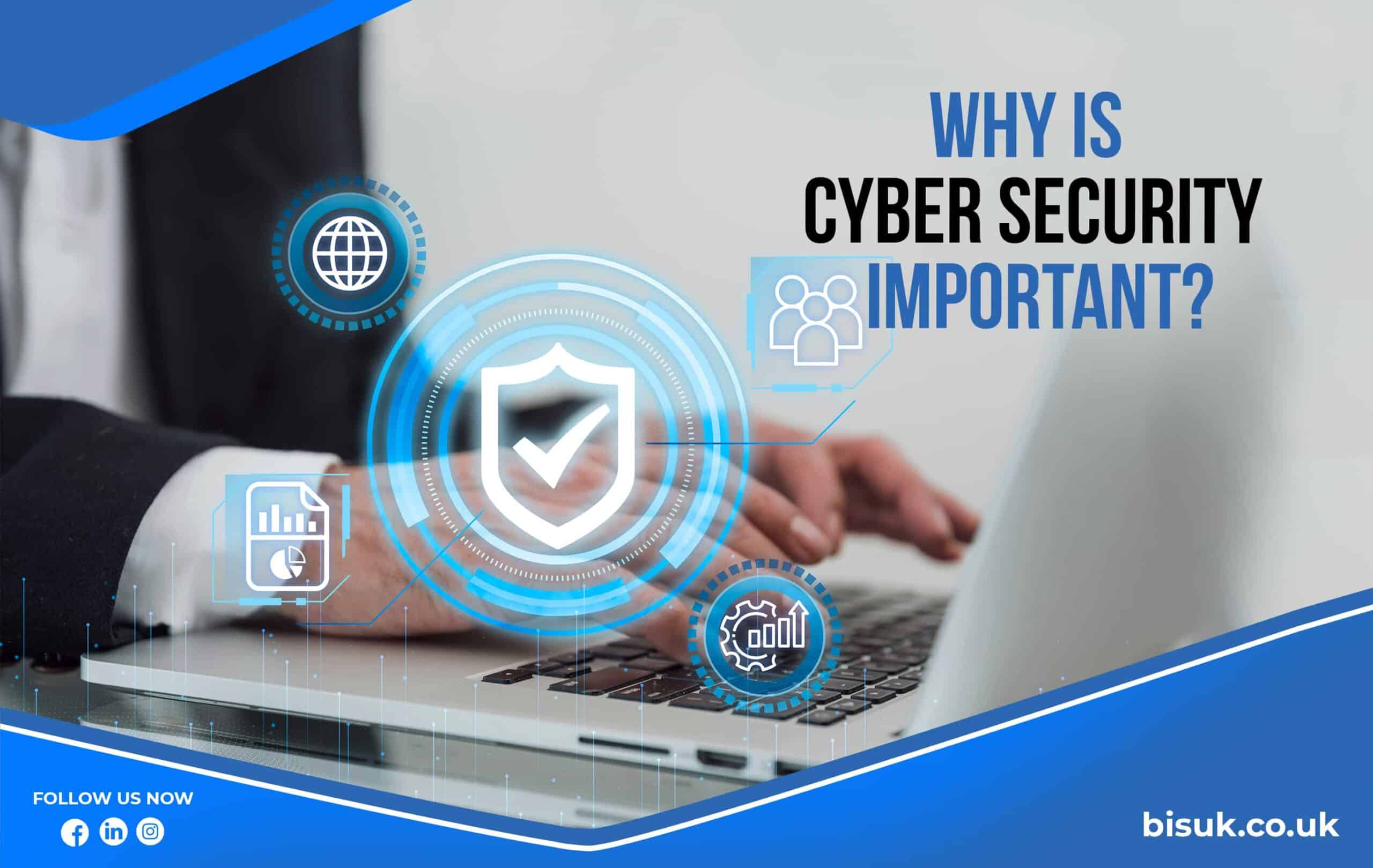In today’s connected world, keeping our digital lives safe from prying eyes is a rising concern. Data breaches are not just big news; they affect millions of people each year. This article will guide you through the ins and outs of cybersecurity, showing you why it’s your digital suit of armor in an online battlefield.
Read on—your privacy depends on it!
Key Takeaways
- Cybersecurity is a shield that protects personal and company data from hackers who use malware and phishing to cause damage.
- The cost of cybercrime keeps rising, costing businesses millions in recovery, legal fines, and reputational harm.
- Staff education on cybersecurity can prevent most breaches since human error is often the weak link.
- Sensitive data protection involves using strong passwords, encryption, and backing up files to keep information safe.
- All sectors, including healthcare and finance, need good cybersecurity to protect against threats like spyware and identity theft.
Understanding Cybersecurity

Cybersecurity is like a digital shield. It keeps our personal information, sensitive data, and private communications safe from hackers. Think of all the secret codes, passwords, and important files we have online.
Cybersecurity protects them from being stolen or damaged by bad actors using malware and viruses.
Hackers are clever; they’re always finding new ways to break into systems. That’s why cybersecurity experts work hard to build strong walls—like firewalls—and create complex puzzles—like encryption—that keep unwanted guests out.
They also teach people how to spot tricks like phishing scams so that everyone becomes a tough nut for cybercriminals to crack.
The Growing Importance of Cybersecurity

Cyber threats are on the rise, and so is the importance of cybersecurity. Every day, hackers try to steal sensitive information from businesses and individuals. They want credit card numbers, social security details, or even trade secrets.
As we rely more on the internet for work, shopping, and social media, our data becomes a target.
Companies must protect their networks and cloud services from attacks to keep our personal data safe. Cybersecurity guards against unauthorized access that can lead to identity theft or ransomware attacks.
The market for this protection is booming—it’s set to grow up to $345 billion by 2026! This growth says loud and clear: protecting information is more critical than ever before.
Businesses understand they need strong passwords and multi-factor authentication to secure their data. Phishing attacks trick people into giving away private info through emails that look real but aren’t.
To stop these cyber criminals, companies invest in staff education and advanced security technologies like encryption. Cybersecurity isn’t just IT’s job anymore; it’s everyone’s business to keep data out of the wrong hands.
The Escalating Trend of Cybercrime
Cybercrime is on the rise, and it’s costing companies millions. Last year alone, organizations saw an uptick in costs by $1.4 million, reaching a staggering $13.0 million due to cyber attacks.
Thieves are getting smarter and their methods more damaging. They’re not just stealing data; they’re going for the most sensitive kind—personal information.
Hackers are also hitting more often, with the number of breaches jumping 11 percent up to 145 instances per organization on average. The thirst for valuable info makes theft one of the costliest and fast-growing areas of cybercrime today.
To make matters worse, people often help hackers without knowing it! Around 90% of data breaches have human error to thank for letting them sneak through the door. Everyone needs to be aware because any slip-up can invite trouble into our digital lives—a single click can lead to disaster.
Impact of Cybercrime
The repercussions of cybercrime ripple through every stratum of society, leaving a wake of disruption that can devastate individual lives and dismantle corporate empires alike. It’s not just a breach—it’s a siege on our digital livelihoods, shaking the very foundations of trust and continuity in an interconnected world.
Economic Consequences
Cyberattacks hit businesses where it hurts – their wallets. The average cost of cybercrime for a company jumped by $1.4 million in just one year, reaching $13.0 million. Every time hackers break into systems, they take information that can be worth millions of dollars.
Companies lose more than just data; they bleed money through recovery costs, ransomware payments averaging $1.85 million per incident, and sometimes even more in fines.
This financial strain from cyber incidents leaves businesses scrambling to recover lost funds and repair damaged relationships with clients and partners who no longer trust them. When sensitive information gets stolen due to poor cybersecurity, companies must set up costly call centers and offer credit monitoring services to affected customers as compensation – measures that dig deep into their revenue streams.
Look at Equifax: after the massive breach affecting 145.5 million people, it had to set aside a $300 million fund for victim compensation alone.
Reputational Damage
Hackers strike and the news spreads fast. Bad headlines can stain a company’s image in an instant. Trust takes years to build, yet one data breach can break it all down. Customers lose faith when they hear their personal information could be in the wrong hands.
Think credit card numbers, social security details, even home addresses—leaked.
Small businesses especially suffer from these attacks; they often lack strong defenses against cyber threats. With 90% of breaches coming from human mistakes, companies face huge blows to their reputations.
They struggle with negative media stories and customers walking away fearing for the safety of their private data.
Regulatory Penalties
Companies caught up in cyber attacks may face hefty fines due to strict regulations. Laws across all 50 states demand that organizations notify those affected by data breaches promptly and pay penalties.
In Europe, the GDPR has taken this a step further. Firms must not only alert victims quickly but also deal with reputation hits as they go public with the breach details.
Getting hit with regulatory penalties adds more pain to an already stressful situation. Fines can sink deep into company funds, sometimes stretching into millions of dollars. This financial blow can hurt any business, big or small.
With so much at stake, it’s crucial for companies to stay vigilant against cyber threats and keep their data security tight and compliant with laws.
Protection Against Cybercrime
Safeguarding your digital landscape is as essential as locking the doors to your business—cybersecurity defenses are the advanced mechanisms that keep intruders at bay. We navigate through an array of strategies that fortify your information fortress, shielding it from the relentless onslaught of cyber threats lurking in the shadows of the digital world.
Staff Education
Staff education is a key part of keeping information safe. Every person on the team needs to know about cyber threats and how to stop them. Here’s what companies can do:
- Make cybersecurity awareness training regular for all staff members. This keeps everyone up-to-date on the latest threats and ways to protect information.
- Use real – life examples during training. Employees learn better when they see how attacks happen in the real world.
- Test employees with fake phishing emails. This shows who needs more help understanding cyber risks.
- Give clear rules on password management, like using complex passwords and changing them often.
- Teach staff about social engineering tricks. Hackers often use these to get into systems.
- Explain the dangers of public Wi – Fi, especially when handling company data.
- Encourage employees to report any strange computer behavior or suspicious emails immediately.
- Reward employees who follow security guidelines well or spot potential threats.
- Involve higher management in cybersecurity training to show it’s important at all levels.
- Provide specific training for teams that work with sensitive data, like personal information or intellectual property.
Sensitive Data Protection
Sensitive data protection keeps important information safe from thieves and hackers. It covers a wide range of info, from personal details to secret business stuff.
- Use strong passwords and change them often. This makes it harder for bad guys to get into your accounts.
- Install encryption on all devices. If a device gets lost or stolen, the info on it stays secret.
- Back up data regularly. Keep copies in different places, so if one gets damaged, you still have others.
- Keep software up to date. New updates often fix holes that hackers could use to break in.
- Limit who can see sensitive info. Only let certain people access important files.
- Use two – factor authentication for better security. Even if someone gets your password, they need another code to get in.
- Train everyone at work about cybersecurity risks and how to avoid them. Knowledge is power against cyber threats.
- Shred documents with private info before throwing them away so no one can piece together important data from trash.
- Have a plan for when bad things happen. Know what to do if there’s a security breach or data loss.
- Regularly check for any weird activity in networks and accounts—catching something early can prevent bigger problems later.
Third-Party Risk Management (TPRM) Solution Implementation
Third-party risk management is a must-have for any business. It keeps your data safe from attacks that could come through other companies.
- Choose a strong TPRM solution like UpGuard to secure your business.
- Make sure it scans for risks in all your third – party vendors.
- The solution should provide security ratings to measure vendor performance.
- Update it often so it can find new types of cyber threats.
- Your TPRM must comply with laws that protect personal and health information.
- Train everyone on how to use the TPRM tools effectively.
- Make plans for quick responses to security incidents involving vendors.
- Ensure the solution encrypts sensitive information for extra safety.
- Regularly assess your vendors using the tool’s risk assessment feature.
- Check that your vendors are also following good cybersecurity practices.
Case Studies: Companies Impacted by Cyber Attacks and Data Breaches
Delving into the high-profile cyber attacks that shook the corporate world, we uncover invaluable lessons from the misfortunes of companies like Equifax—highlighting just how critical robust cybersecurity measures are in safeguarding sensitive information.
Equifax
Equifax faced a massive data breach that shocked the world. Hackers stole personal details of over 145 million people in the US, impacting credit histories and identities. This attack also hit nearly 44 million British citizens and thousands in Canada.
The company had to create a $300 million fund for those harmed by the incident.
The fallout from this cybercrime was costly. Equifax paid states and territories $175 million, alongside $100 million in federal fines. Information security became a crucial lesson for companies everywhere after this breach showed how vulnerable sensitive data can be.
eBay
eBay got hit hard by cyber attackers. In 2014, this popular online auction site faced a massive data breach. Hackers stole names, addresses, dates of birth, and encrypted passwords.
The impact was huge—145 million users had to reset their passwords. Imagine the chaos for shoppers and sellers alike! This incident shows just how vital strong cyber security measures are for protecting personal information.
Users trust eBay with their credit card numbers and sensitive personal details every day. When that trust breaks, it can take years to repair. eBay’s breach highlighted the need for better password management and data encryption practices across the web.
Businesses learned they must guard user data like gold to keep cyber criminals at bay.
Adult Friend Finder
Adult Friend Finder faced a massive data breach. This incident exposed the personal details of millions of users. It showed that businesses need to take cybersecurity seriously, no matter their size or industry.
Cyber attacks like this can lead to big problems, including losing customer trust and facing legal issues.
Companies must educate their staff on staying safe online. They should also use advanced security tools to protect user information. The Adult Friend Finder breach teaches us that basic antivirus programs are not enough anymore.
Keeping customer data safe is key for any business today.
Yahoo
Yahoo faced one of the largest data breaches in history. Hackers stole information from every single Yahoo user account. That’s billions of accounts worldwide! This breach showed how big a target huge companies can be.
Sensitive details got into the wrong hands. We’re talking names, emails, and passwords. It wasn’t just once, but multiple times over several years. These attacks hurt Yahoo’s reputation and trust with users.
They learned that strong cybersecurity is not just important — it’s a must-have for survival in the digital world.
Assessing Business Risk for a Data Breach
Companies need to figure out their risk of a data breach. It’s like knowing the chances of rain before planning a picnic. They look at what might cause harm, such as weak passwords or old software.
Businesses also check how safe their network security is. They ask questions like “Is our wifi secure?” and “Are we using good firewalls?”.
After figuring out the risks, companies make plans to protect themselves. This could mean teaching staff about cyber dangers or making sure all sensitive information stays hidden away safely on the cloud or in encrypted storage systems.
To stay ahead of hackers, businesses often hire experts who know all about internet threats and can spot weaknesses that need fixing right away.
Importance of Cybersecurity in Different Sectors
Every sector today relies on digital processes and cloud storage services to function. This makes cybersecurity a shield for our financial systems, healthcare records, and personal information stored online.
In the healthcare industry, protecting patient data is a big deal. Cybersecurity guards against leaks of protected health information (PHI) and personally identifiable information (PII).
For financial institutions, it’s about keeping credit cards and banking info safe from theft.
In manufacturing and utilities, cyber threats can shut down operations or damage industrial controls. These critical infrastructures use internet of things (IoT) devices that must be secured to prevent outages or harm to public services.
Retailers also require strong security measures. They collect customer data at checkout points both in stores and online through smartphones and other mobile devices. A breach could mean stolen identities or credit card fraud.
Good cybersecurity practices keep these sectors safe from spyware, worms, malicious software, and harmful attacks like SQL injection or denial-of-service attacks. It’s more than just preventing trouble; it’s ensuring trust in systems we all depend on every day.
Myths Around Cybersecurity
Many people believe only big companies need to worry about cybersecurity. That’s not true. Small businesses are just as much a target for cybercriminals. In reality, their security often isn’t as strong, which can make them easier targets.
Another myth is that antivirus software alone will keep you safe. But hackers are always finding new ways to break in, so relying on just one defense tool isn’t enough.
Some folks also think passwords are a bulletproof shield against hackers. Sadly, even the best passwords can be cracked or stolen. It’s smart to use tools like multi-factor authentication for extra safety layers.
People may assume cyber attacks always happen because of outside hackers. However, many data leaks come from inside an organization due to mistakes by employees—90% in 2019! Good security training at work can help stop these errors and protect everyone’s information better.
Key Cybersecurity Technologies and Best Practices
Cybersecurity tools and practices are essential for protecting against data theft and harmful software. They help keep our personal information safe from cybercrimes.
- Use strong passwords: Choose complex passwords and change them regularly. Employ a password manager to keep track of different logins.
- Install updates promptly: Regularly update your software to protect against the latest security threats.
- Back up your data: Keep copies of important data in a secure location, such as an encrypted cloud service like Dropbox or Azure.
- Utilize multi-factor authentication (MFA): This adds an extra layer of security by requiring more than just a password to log in.
- Educate employees: Cybersecurity awareness training can help staff spot scams and prevent breaches.
- Secure mobile devices: Use endpoint security solutions to protect smartphones and tablets that access company networks.
- Conduct penetration testing: Hire penetration testers to find vulnerabilities before hackers do.
- Monitor for intrusions: Set up security systems that alert you to suspicious activity on your network.
- Encrypt sensitive information: Protect your data by encrypting it, especially if it is transmitted over the internet.
- Follow IT security frameworks: Adhere to standards from organizations like the National Institute of Standards and Technology for best practices in cybersecurity.
- Control physical access: Limit who can physically get to computers and network components.
- Employ incident response plans: Be ready with a plan for how to respond if a cyber attack happens.
- Secure wireless connections: Make sure all Wi-Fi networks use strong encryption methods, like WPA3, especially Bluetooth connections.
- Leverage artificial intelligence (AI): AI can detect threats faster than humans by analyzing unusual patterns and behaviors in large amounts of data.
- Implement network segmentation: Separate sensitive areas of your network from less critical parts to reduce the impact of potential breaches.
- Know what information you have stored and where it is kept so that you can protect it better.
The Role of a Cybersecurity Expert
Cybersecurity experts are like digital bodyguards for a company’s data. They dive deep into security systems to find and fix weak spots. These pros keep a close eye on networks, hunting for suspicious activity that could signal a cyber attack.
With their help, businesses lock down sensitive info using robust tools like firewalls, antivirus programs, and VPNs.
These professionals don’t just defend; they educate teams on staying safe online too. They set up strong passwords and multi-factor authentication to guard against intruders. Plus, they encrypt important files so even if hackers break in, the stolen data is useless.
Certifications like CEH show they’ve got the skills to outsmart cybercriminals and protect companies big time.
The Necessity of Certifications for Cybersecurity Professionals
In the high-stakes realm of cyber defense, certifications aren’t just resume embellishments; they’re critical markers of proficiency and commitment. With threats evolving at a breakneck pace, cybersecurity professionals must demonstrate their mastery of cutting-edge practices and principles—a task where industry-recognized certifications become indispensable assets for individuals aiming to navigate this ever-shifting landscape effectively.
Certified Ethical Hacking (CEH) Certification
Becoming a certified ethical hacker means you know how to find and fix security problems. People with a CEH certification can spot weaknesses in computer systems before bad guys do.
These experts work on the front lines, protecting important data from cyber attacks. They understand cloud security, security architecture, and more.
A CEH certificate tells employers you’re serious about stopping hackers. Many companies look for this when they hire for cybersecurity jobs. It’s like having a badge that says you can defend against adware and other threats on the internet of things.
Getting your CEH is a smart move if you want to help keep information systems safe and secure.
CISSP Certification
The CISSP certification stands tall in the cybersecurity field. It shows that a professional has deep knowledge and skills to protect organizations from cyber threats. Holding a CISSP certificate means you’ve passed a tough exam and have years of experience in security roles.
Certified professionals know how to manage risks and set up strong security practices. They also understand different areas like cloud computing, mobile security, and application development security.
Big companies look for this certification when hiring because it’s proof of top-tier abilities in cyber defense. With human errors causing most data breaches, having CISSP experts on the team can make all the difference.
Conclusion
Cyber attacks are like invisible thieves, always looking for a way in. They can steal money, secrets, and even ruin reputations. Everyone must protect their information – it’s as important as locking your doors at night.
With the right security steps, we can keep our digital lives safe. Let’s make sure to stay one step ahead of cyber criminals!
Get the right networking services to mitigate potential risks and invest in appropriate cybersecurity services for your business – because it’s not worth the risk!
Contact us for a quote and secure your business with Britannia IT Solutions today!
FAQs
1. What does cyber security protect us from?
Cyber security guards against hackers, viruses, and other online threats to keep our personal information safe.
2. Can cyber security help prevent identity theft?
Yes, strong cyber security measures can reduce the risk of identity theft by protecting your sensitive data.
3. Why should businesses worry about cyber security?
Businesses need to focus on cyber security to protect their customer data and maintain trust in their brand.
4. Does having good cyber security mean I won’t get any computer viruses?
While nothing is foolproof, good cyber security greatly lowers chances of getting computer viruses.
5. Is it important for me to have a strong password for my accounts?
Having a strong password is critical—it’s one of the simplest steps you can take toward better online protection.










